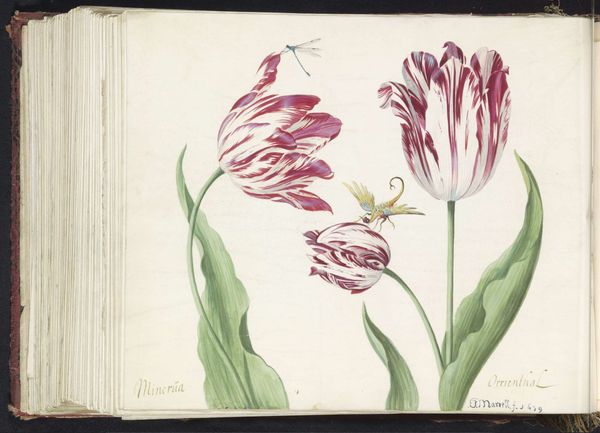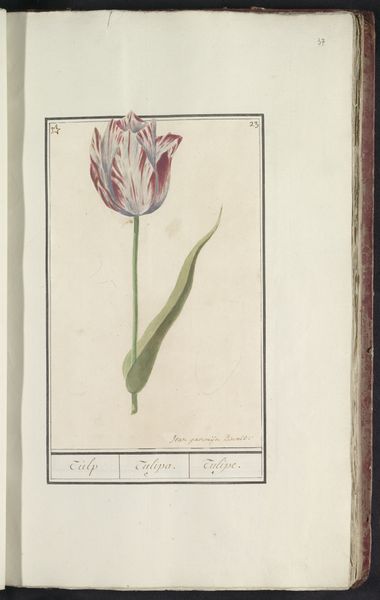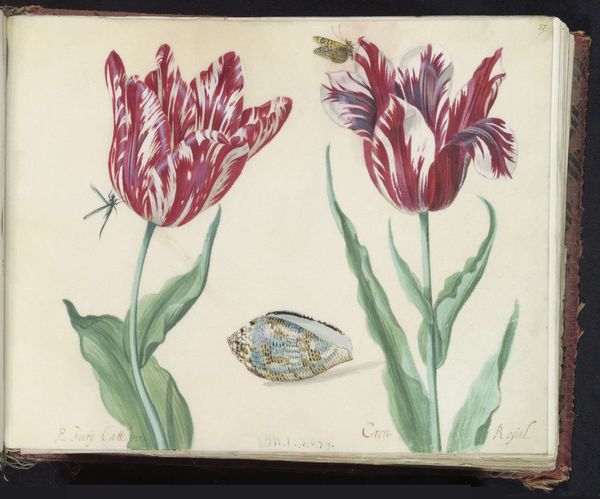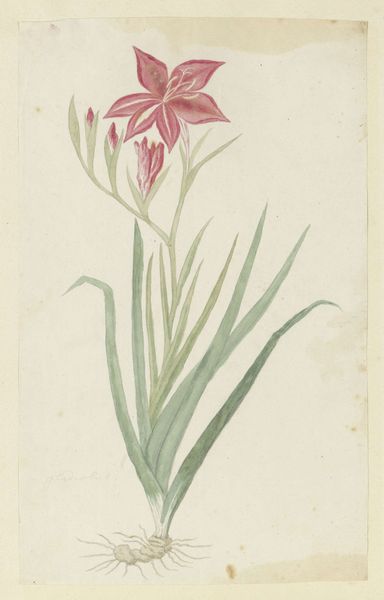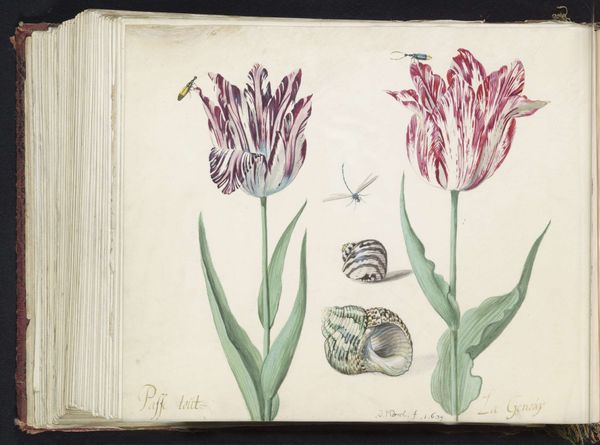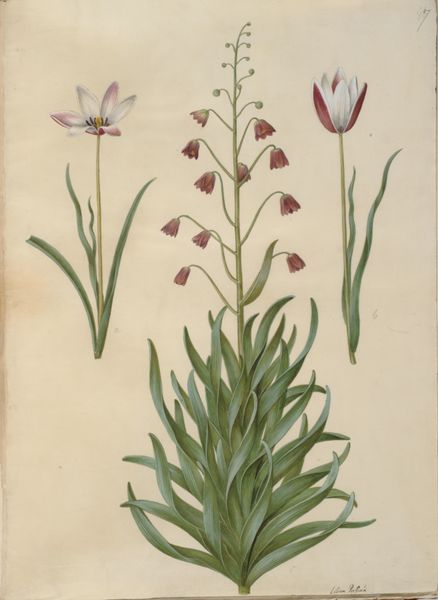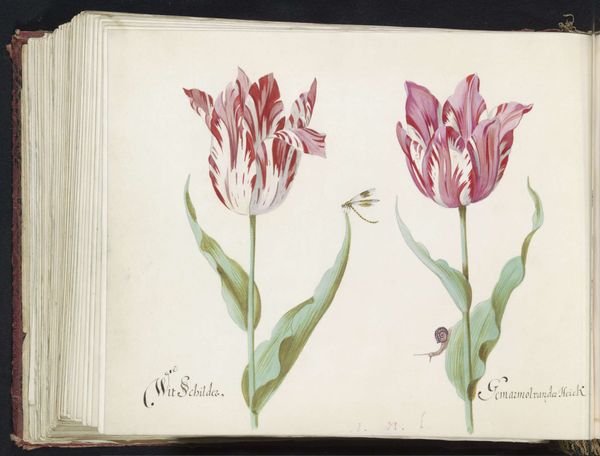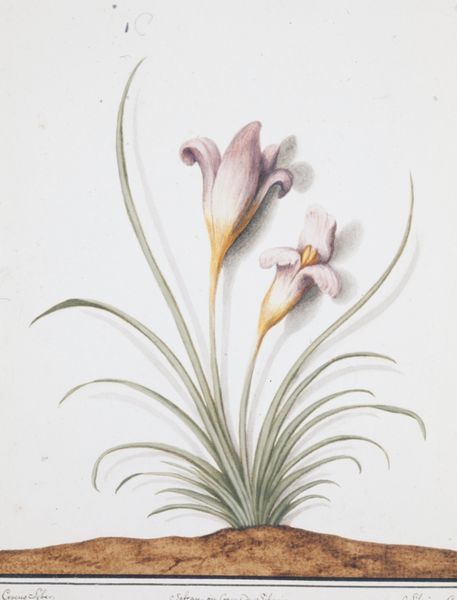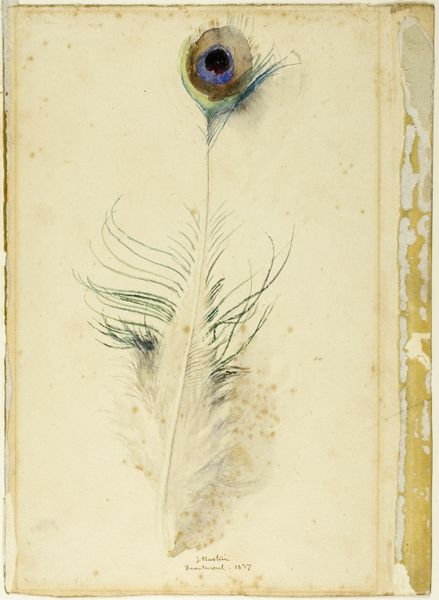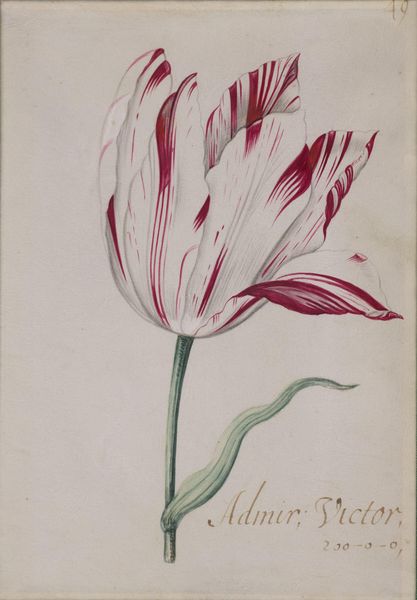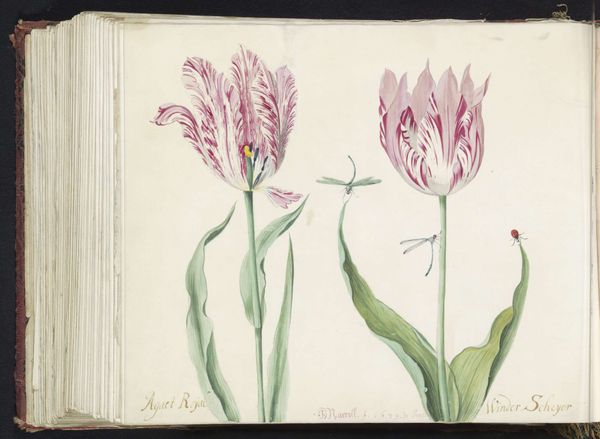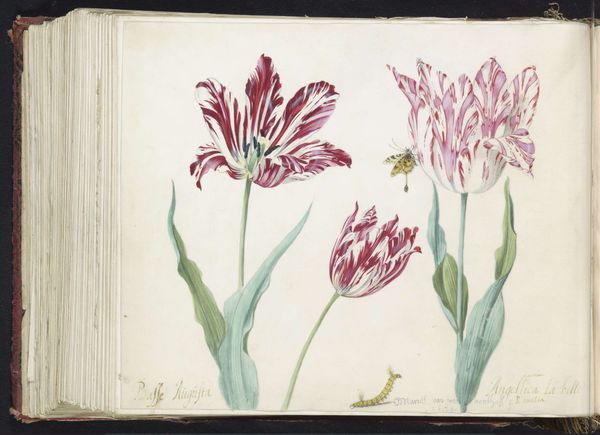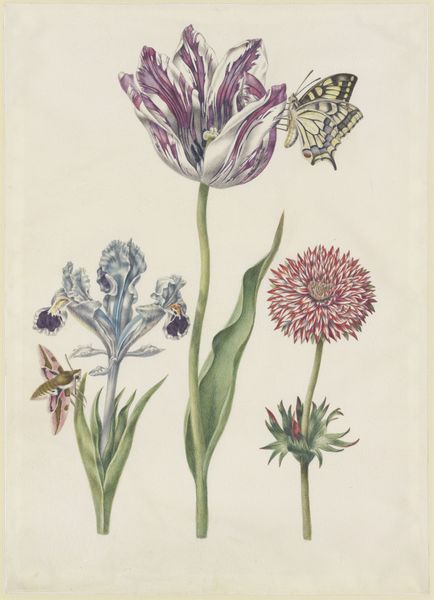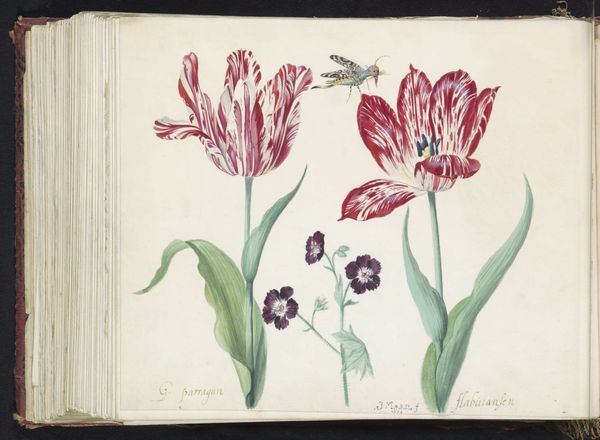
Dimensions: height 195 mm, width 155 mm
Copyright: Rijks Museum: Open Domain
Jan Brandes, a Dutch clergyman, created this watercolor drawing titled "Kaapse bloem," meaning "Cape Flower," as part of his documentation of flora during his time in South Africa in the late 18th century. Brandes' work is part of a colonial history, where the act of documenting and classifying nature was intertwined with European expansion and control. These botanical drawings were often commissioned by Europeans interested in the natural resources and potential economic gains of colonised lands. While beautiful, this image exists as part of a project of extraction. It also reflects the scientific, and philosophical trends of the Enlightenment, which sought to categorize and understand the natural world through observation and documentation. As you look at this image, consider how it reflects both a genuine interest in the natural world and the complex, often exploitative, relationship between Europe and the rest of the world during the colonial era.
Comments
No comments
Be the first to comment and join the conversation on the ultimate creative platform.
